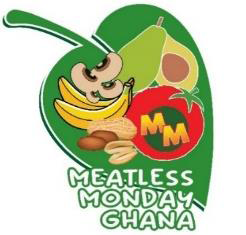
Last week, the global health community commemorated World Kidney Day. The theme “Are your kidneys OK? Detect early, protect kidney health” is a wakeup call on all to pay attention to this vital organ in order to prevent any kidney diseases that may be quietly waiting to strike. In the face of the increasing cases of chronic kidney illness globally and even in Ghana the call for early screening and detection cannot be over emphasized.
Meatless Monday Ghana therefore this week presents to you some basic information on our kidneys and how to carry out your own process of detecting how safe you are from kidney disease.
According to Johns Hopkins University Medicine (2025) “the kidneys are responsible for removing wastes, toxins and extra water from the body; balancing important salts and minerals in the blood; and releasing hormones to help control blood pressure, manage anaemia and help maintain strong bones. The waste and extra water removed by the kidneys become urine. The urine flows through tubes called ureters. It goes to your bladder, which stores the urine until you go to the bathroom.”
When the kidneys are damaged, they can’t filter blood as they should. The result can be a build-up of wastes in your body, as well as other problems that can harm your health.
At first, kidney disease is silent. Symptoms often don’t appear until the kidneys are badly damaged. Many people don’t have any symptoms until their kidney disease is advanced. Blood and urine tests are the only way to know if you have kidney disease. Without effectively functioning kidneys the human body would will stand like a house parked with filth.
Let us therefore be conscious of these symptoms (Courtesy Johns Hopkins Medicine)
- Changes in urination
Your urine may be foamy or bubbly; you may urinate more or less often; amounts may be greater or less than usual; the color may be darker or paler than usual; you may see blood in the urine; you may have difficulty urinating - Swelling
When your kidneys don’t work, excess fluid isn’t removed from your body. It can build up and cause swelling in the legs, ankles, feet, face, and/or hands. - Fatigue
The kidneys make a hormone called erythropoietin, or EPO, which tells your body to make oxygen-carrying red blood cells. If your kidneys are damaged, they make less EPO, which means fewer red blood cells are available to carry oxygen. This is called anaemia, and which can be treated. - Skin Rash/Itching
When the kidneys can’t remove wastes from the body, it builds up in your blood and can cause severe itching. - Metallic Taste in Mouth/Ammonia Breath
When waste builds up in the blood it is called uraemia. This can make food taste different and cause bad breath. It is not uncommon to stop liking to eat meat, or to lose weight because you don’t feel like eating. - Nausea and Vomiting
Uraemia can also cause nausea and vomiting. - Shortness of Breath
Extra fluid in the body can build up in the lungs. This build up, combined with anaemia, can result in shortness of breath. - Feeling Cold
Anaemia can make the body feel cold even when in a warm room. - Dizziness and Trouble Concentrating
Anaemia that is the result of kidney failure means that your brain is not getting enough oxygen, which can lead to memory problems, trouble with concentration, and dizziness.
Watch out for these symptoms and save yourself from chronic kidney disease!
MESSAGE OF THE WEEK
Meat consumption and kidney health
High red meat consumption can negatively impact kidney health because it’s a source of protein that, when metabolized, produces waste products that kidneys must filter,
potentially overloading them and increasing the risk of kidney disease.
Reduce meat consumption and eat more plant-based foods on Mondays for a healthier life.
Save your life- Save the Environment!




